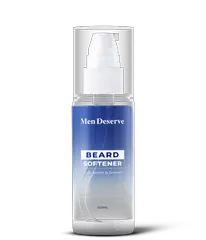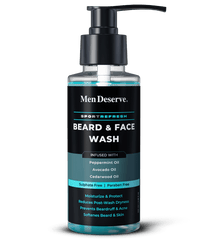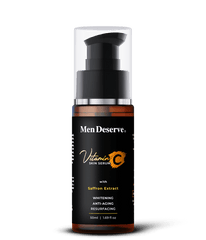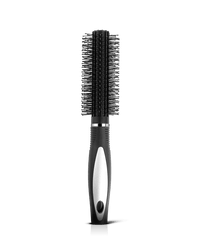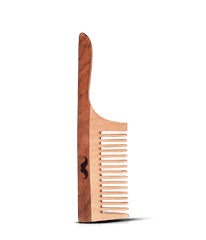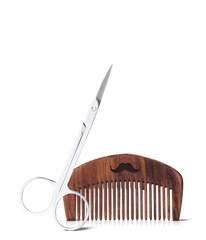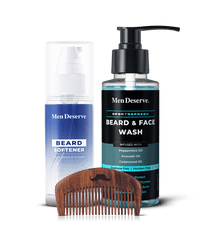Hair Loss: Impact on Daily Life of a Men
John woke up one morning, looked into the mirror, and noticed something distressing. His hairline seemed to be receding, and there were more strands on his pillow than usual. As he went about his day, John couldn't shake off the feeling of unease. The thought of losing his hair weighed heavily on his mind, affecting his confidence and self esteem. Little did he know that he was not alone in this struggle. Hair loss is a common concern among men, with various causes and stages that can significantly impact their daily lives.
Hair Loss in Men

Hair loss, medically known as alopecia, is a condition that affects millions of men worldwide. While it is often associated with aging, it can occur at any stage of life and for various reasons. Understanding the causes, stages, and impact of hair loss is crucial for men who are experiencing this issue.
Difference Between Hair Fall and Hair Loss in Men
|
Aspect |
Hair Fall |
Hair Loss |
|
Definition |
Normal shedding of hair strands |
Progressive thinning or balding of hair |
|
Frequency |
Daily hair shedding within the normal range |
Excessive hair shedding leading to visible scalp or bald patches |
|
Causes |
Seasonal changes, stress, hormonal fluctuations, nutritional deficiencies, improper hair care |
Genetic predisposition (androgenetic alopecia), hormonal imbalance, underlying health conditions (thyroid disorders, autoimmune diseases) |
|
Scalp Condition |
Typically, the scalp remains healthy with no visible signs of balding or thinning |
Often accompanied by visible scalp, receding hairline, or thinning patches |
|
Regrowth Potential |
Hair regrowth is possible with proper care and addressing underlying causes |
Regrowth may be limited without intervention, depending on the cause and stage of hair loss |
|
Treatment Options |
Lifestyle changes, proper nutrition, stress management, topical treatments, and hair care routines |
Medications (e.g., minoxidil, finasteride), hair transplantation, platelet-rich plasma (PRP) therapy, laser therapy |
Causes of Hair Loss in Men
Hair loss in men can be attributed to a myriad of factors, ranging from genetics to lifestyle choices. One of the primary culprits is male pattern baldness, a hereditary condition that leads to gradual hair thinning and eventual loss. Hormonal imbalances, particularly an excess of dihydrotestosterone (DHT), play a significant role in this process. Additionally, stress and poor dietary habits can contribute to hair loss by disrupting the normal growth cycle of hair follicles. Certain medical conditions like thyroid disorders and alopecia areata can also trigger significant hair shedding. Understanding these causes is crucial for men seeking to mitigate or reverse the effects of hair loss and regain confidence in their appearance.
Stages of Hair Loss in Men

Stage 1: Normal Hair Growth
- During this stage, hair grows normally without any noticeable signs of hair loss.
- The hairline remains intact, and there are no visible thinning patches.
Stage 2: Minimal Hair Loss
- In this stage, individuals may start noticing minimal hair shedding.
- There might be a slight recession of the hairline, but it's often subtle and not easily noticeable.
Stage 3: Beginning of Hair Thinning
- Hair loss becomes more evident during this stage.
- Receding hairline becomes more pronounced, especially at the temples.
- Thinning may also occur at the crown of the head, forming a distinct "M" shape.
Stage 4: Advanced Hair Thinning
- Hair loss becomes more noticeable, with significant thinning at the crown and temples.
- Scalp becomes more visible, and hair density decreases.
- Individuals may start considering hair loss treatments at this stage.
Stage 5: Extensive Hair Loss
- Hair thinning becomes severe, with large areas of balding at the crown and temples.
- The hairline recedes further, and the "M" shape becomes more pronounced.
- Remaining hair becomes sparse, and scalp visibility increases significantly.
Stage 6: Near Baldness
- Most of the hair is lost, leaving only a narrow band of hair around the sides and back of the head.
- Scalp is highly visible, and hair coverage is minimal.
- Individuals may choose to shave their heads or opt for hair restoration procedures.
Stage 7: Complete Baldness
- Hair loss reaches its most advanced stage, with no remaining hair on the scalp.
- Scalp is fully exposed, and there is no hair coverage.
- At this stage, hair transplant surgery may be the only option for regaining a full head of hair.
Men's Hair Loss Impact on Daily Life

Self-esteem and Confidence
- Many men experience a decline in self-esteem and confidence due to hair loss.
- Thinning hair or a receding hairline can impact how men perceive themselves and how they believe others perceive them.
Social Interactions
- Hair loss can affect social interactions and relationships.
- Some men may feel self-conscious in social settings, leading to avoidance of certain activities or events.
Professional Life
- Hair loss can impact professional life and career opportunities.
- In some industries, appearance is considered important, and hair loss may affect perceptions of competence or attractiveness.
Psychological Impact
- Hair loss can lead to feelings of anxiety, depression, or frustration.
- Coping with the changes in appearance and adjusting to a new self-image can be emotionally challenging.
Support Systems
- Having a support system of friends, family, or support groups can be beneficial for men experiencing hair loss.
- Open communication and understanding from loved ones can help alleviate some of the emotional burden.
Acceptance and Coping
- Accepting and embracing one's appearance, regardless of hair loss, is an important aspect of coping.
- Finding ways to maintain confidence and self-worth beyond physical appearance is crucial for overall well-being.
Finding Solutions for Hair Loss in Men

Available Treatments
-
Medications:
-
Finasteride (Propecia): Blocks the hormone responsible for hair loss.
-
Minoxidil (Rogaine): Stimulates hair growth.
-
-
Hair Transplant Surgery: Transferring hair follicles from one part of the body to the scalp.
-
Low-Level Laser Therapy (LLLT): Stimulates hair follicles to promote hair growth.
-
Platelet-Rich Plasma (PRP) Therapy: Uses the patient's blood to stimulate hair growth.
-
Scalp Micropigmentation (SMP): Mimics the appearance of hair follicles with tattooing.
Lifestyle Changes
-
Balanced Diet: Ensure adequate intake of vitamins, minerals, and proteins.
-
Stress Management: Incorporate relaxation techniques into daily routine.
-
Gentle Hair Care: Avoid harsh chemicals and excessive heat styling.
-
Regular Exercise: Improves blood circulation, promoting scalp health.
Consultation with Professionals
-
Dermatologists: Specialize in diagnosing and treating hair loss.
-
Trichologists: Experts in hair and scalp health.
-
Hair Restoration Specialists: Provide personalized treatment plans based on individual needs.
Future Innovations
-
Stem Cell Therapy: Promising avenue for regenerating hair follicles.
-
Gene Therapy: Targeting genetic factors underlying hair loss.
-
Nanotechnology: Delivering treatments directly to hair follicles for enhanced efficacy.
Psychological Support
-
Counseling: Helps individuals cope with the emotional impact of hair loss.
-
Support Groups: Connect with others facing similar challenges for mutual support.
Final Thoughts
Hair loss is a multifactorial issue that can have significant physical, emotional, and social consequences for men. Understanding the causes, stages, and impact of hair loss is the first step towards finding effective solutions and coping mechanisms. Whether through medical treatments, lifestyle changes, or embracing baldness with confidence, men have options to address hair loss and reclaim their sense of self-assurance and well-being.
Frequently Asked Questions
1. What are the stages of hair loss in men?
Hair loss in men typically progresses through stages: initial thinning, receding hairline, balding at the crown, and eventual widespread hair loss.
2. What are the causes of hair loss in males?
Causes of hair loss in males include genetics (male pattern baldness), hormonal changes, medical conditions like alopecia areata, and certain medications or treatments.
3. How does baldness affect men?
Baldness can affect men psychologically, leading to decreased self-esteem, anxiety, and depression. It may also impact social interactions and perceptions of attractiveness.
4. How does hair loss affect a person?
Hair loss can have emotional, social, and psychological effects on individuals, causing stress, lowered self-confidence, and a sense of loss of identity or attractiveness. It may also affect personal relationships and career opportunities.







